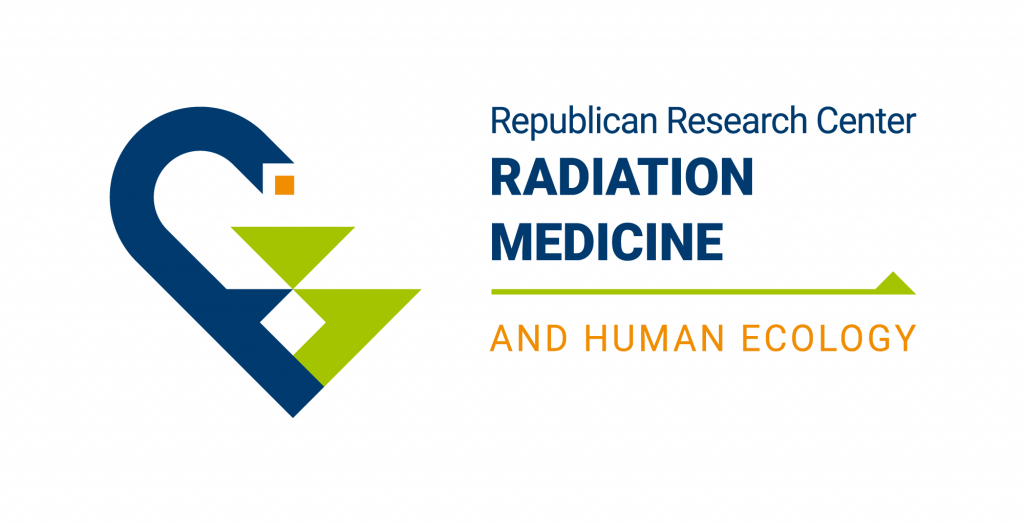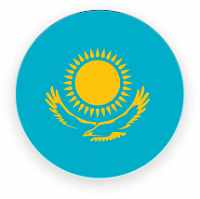International cooperation
Belarusian-American scientific protocol for the study of thyroid cancer and other thyroid disease in Belarus after the Chernobyl accident
The Chernobyl accident on April 26th, 1986 resulted in the contamination of large areas from radioactive isotopes. To assess the risk of thyroid cancer and other thyroid diseases caused by the Chernobyl accident, a long-term epidemiological study of a cohort of childhood and adolescent exposures has been implemented since 1994 in collaboration with the US National Cancer Institute. Individual thyroid doses for cohort members were reconstructed. Screening examinations of these individuals have demonstrated an increased risk of thyroid cancer and other thyroid diseases associated with iodine-131 (131I) received in childhood and adolescence.
Since data on the risk of thyroid cancer and other thyroid diseases in those exposed in utero is less extensive, in 2017 the US National Cancer Institute, in collaboration with the Republican Research Center for Radiation Medicine and Human Ecology, created a cohort of individuals exposed in utero and early life due to fallouts after the accident at the Chernobyl nuclear power plant.
The obtained data allow us to develop preventive measures for the early diagnosis and treatment of thyroid pathology.
The project found its continuation in the study of the effect of radiation on the mammary gland. Our overarching goal is to examine the association between radiation exposure and breast cancer risk among women exposed to Chernobyl fallout during lactation. The objective of the proposed protocol is to compare breast cancer incidence among women exposed to radiation during lactation, to breast cancer incidence rates in the general population. To accomplish this objective, we plan to trace up to 4,500 women who were likely to be breastfeeding during the 3 months following the Chernobyl accident in contaminated regions of Belarus.
Understanding the radiation-related risk of breast cancer in women exposed during lactation can inform medical follow-up in the case of another nuclear accident and regulatory standards in occupational settings.
Memorandum of Cooperation within the Framework of the Chinese-Belarusian Friendship Hospital
RRCRM&HE together with the Hospital 416 of the China Nuclear Industry Corporation signed a Memorandum of Cooperation. The institutions supported the idea of creating a Chinese-Belarusian Friendship Hospital. This cooperation is intended to promote technological progress in the field of emergency medical care in nuclear accidents, treatment of radiation injuries, health management of personnel associated with the nuclear industry, and treatment with nuclides.
Project for the provision of psychosocial services for children with cancer and their relatives in the Oncological Hematology department for children at RRCRM&HE together with the Baden-Württemberg State Foundation, Stuttgart
Within the framework of this project, the Baden-Württemberg State Foundation covers the salary of a psychologist with the direction of child and adolescent psychology in the Oncological Hematology department for children, as well as advanced training courses, material equipment, and equipment for a psychological support room are held. Concerts, clown performances are organized, children are being rehabilitated after treatment in the Hematology department for children in Germany, and humanitarian supplies are received in the form of medicines. The implementation of the project improves the quality of life of children with oncohematological diseases. This project has been implemented since 2004.
An agreement on academic and educational exchange between the State Institution "Republican Research Center for Radiation Medicine and Human Ecology" and the Research Institute for Radiation Biology and Medicine, Hiroshima University was signed. Cooperation is carried out under the following programs:
1. Promotion of joint research;
2. Exchange of faculty members and administrative staff;
3. Exchange of graduate students;
4. Exchange of research outcomes, academic publications and other academic information;
5. Other academic and educational exchange programs approved by both institutions.
Specialists of the RRCRM&HE are trained on a permanent basis at the Akita University Hospital. In particular, our specialists were trained in the Department of Radiation Diagnostics in Computed Tomography, Magnetic Resonance Imaging, took part in a training program to master new methods of working on a flow cytometer and new methods of molecular genetic analysis, completed a training course on diagnostics and treatment of oncohematological diseases, stem cell transplantation.
During the training, new molecular genetic methods for typing and monitoring of oncohematological diseases were mastered, new possibilities of multicolor flow cytometry in the diagnosis of pathological conditions were studied, which are currently actively used in the work of the clinical diagnostic laboratory, laboratory of molecular genetics of the scientific department, were carried out.
According to the results of the training of the RRCRM&HE specialists on the base of the Department of General Internal Medicine and Clinical Laboratory Medicine of the Akita University Hospital, the Infection control group implemented the method developed by the RRCRM&HE for determining the ability of bacteria to form a biofilm (authors Yulia Yarets , Natalya Shevchenko), which has a positive feedback on the high informativeness of the methodology (Tomu Saga, M.D., PhD, vice director of the Central Laboratory in Akita).
Joint project of the ROTARY club and
RRCRM&HE on screening for early detection of cervical cancer
- The Rotary Club “Ratusha-Belarus”, The Rotary Club “Adda Lodigiano – Italia”
- RRCRM&HE
- Public association "Belarusian Union of Women".
Cervical cancer is quite common, taking second place among all gynecological cancers after cancer of the uterus body. About 11,000 residents of the Gomel region, the territories most affected by the accident at the Chernobyl nuclear power plant, were examined for the detection of cervical cancer using the liquid cytology method. This method is the most accurate and modern, for the first time in the Republic of Belarus it was introduced into the practice of the laboratory in our center.
Within the framework of the project, 4 colposcopes were purchased at the expense of the ROTARY Club, 2 of which were installed in the consultative polyclinic of the RRCRM&HE, 1 in the Dobrush district hospital and 1 in the Vetka district hospital.
Obstetrician-gynecologists of the Center, who also underwent training in Italy, trained 4 specialists of doctors from district hospitals of controlled areas in the procedure for taking smears for a PAP-test. Within the framework of mobile teams, screening was carried out in Vetka, Dobrush, Chechersk and Khoiniki districts inviting women to participate in project for the early detection of precancerous pathology and cervical cancer, a campaign was conducted to raise awareness of women in Belarus about the prevention of cervical cancer.
Doctors of laboratory diagnostics of the group of cytological studies were trained in Italy to evaluate the results of the PAP-test according to the Bethesda classification. Our specialists, in turn, trained 17 doctors of laboratory diagnostics of the following institutions:- Gomel Regional Oncological Dispensary;
- Minsk Regional Oncological Dispensary;
- Mozyr Regional Hospital;
- doctor of laboratory diagnostics at RRCRM&HE.
After the completion of the project, we have conducted a comparative analysis of the effectiveness of cytological diagnosis of cervical diseases using the Romanowsky–Giemsa staining method for smears versus the Papanicolaou staining (PAP-test) commonly used in European countries. With a parallel cytological study of smears stained according to Papanikolaou and Romanowsky–Giemsa, we have detected negative results of both tests in 10612 patients; pathology of the cervix using the PAP-test was detected in 514 patients, with the use of the Romanowsky–Giemsa method - in 368 women.
Based on the results of the work, instructions were developed for the preanalytical stage of research using the PAP test to ensure the diagnostic process in district clinics.
- National public association "Union of Chernobyl Veterans of the Republic of Kazakhstan". Within the framework of the agreement, medical services are provided under the conditions of the RRCRM&HE. Treatment of veterans of Chernobyl of the Republic of Kazakhstan, as well as members of their families, is annually organized.
- Memorandum of cooperation with the Republican Clinical Hospital for the disabled veterans of the Great Patriotic War.
- Agreement on scientific and practical cooperation with the Municipal State Enterprise "Pavlodar Regional Hospital named after Galym Sultanov"
- Agreement on cooperation with the State Enterprise "City Clinical Hospital No. 1" of the city of Almaty, Republic of Kazakhstan






